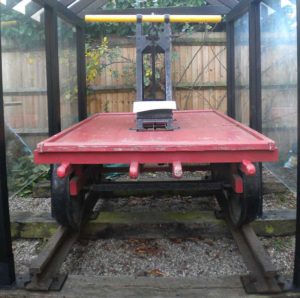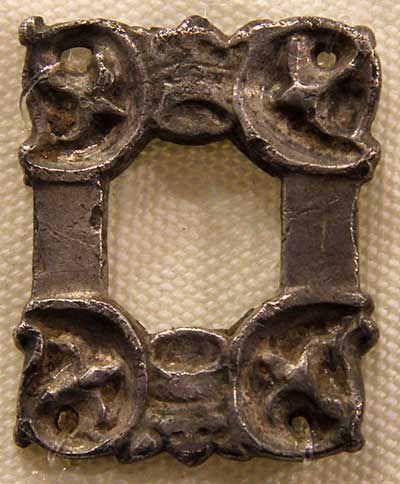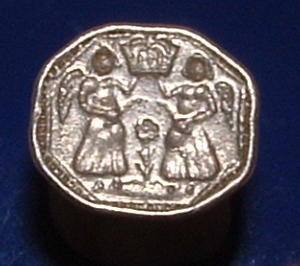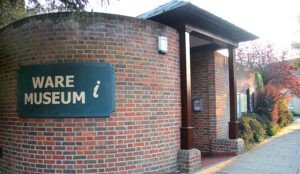The Wickham Trolley
In 1886 Mr. Dennis Wickham founded the Motorcar and General Engineers company. In later years Wickham’s company became well known for their railway vehicles which were exported around the world, many of which can still be seen in action as far apart as Taiwan and Peru. This example of a hand-pump trolley, as seen in films like the Keystone Cops, was donated to the Ware Museum in 1991.


The Pilgrim's Badge
During medieval times pilgrimages to important religious venues were conducted on a regular basis. Badges would be worn by the participants to show which saint they were following, with the saint’s image inside the frame. Ware was an important stopping point on the pilgrimage to the shrine of St. Mary the Virgin at Walsingham and benefitted from the money brought into the town. However, in the 16th century, Edward VI, son of Henry VIII, banned pilgrimages altogether, thus inflicting considerable financial hardship on Ware. It has been speculated that the Great Bed of Ware, created in Elizabeth I’s reign, was a way of drawing in visitors to the Inns of Ware as a result of this deprivation.
Prior’s Seal from Alien Benedictine Priory
The Alien Benedictine Priory of Ware was established in 1081 by the Abbey of St. Evroul on land granted to them by Hugh de Grantmesnil in Ware. Archaeological evidence places the Priory on land north of St. Mary’s Church, the Saxon church being part of the grant. The Ware Priory was the principal house in England, collecting tithes from other Alien Priories and sending the money to the Mother House in France. Henry V, being at war with France lost patience with this practice, closing all the Alien houses in England and distributing their money amongst other Priories which he supported. Ware, being the principal house, was demolished leaving little evidence of this important place.


